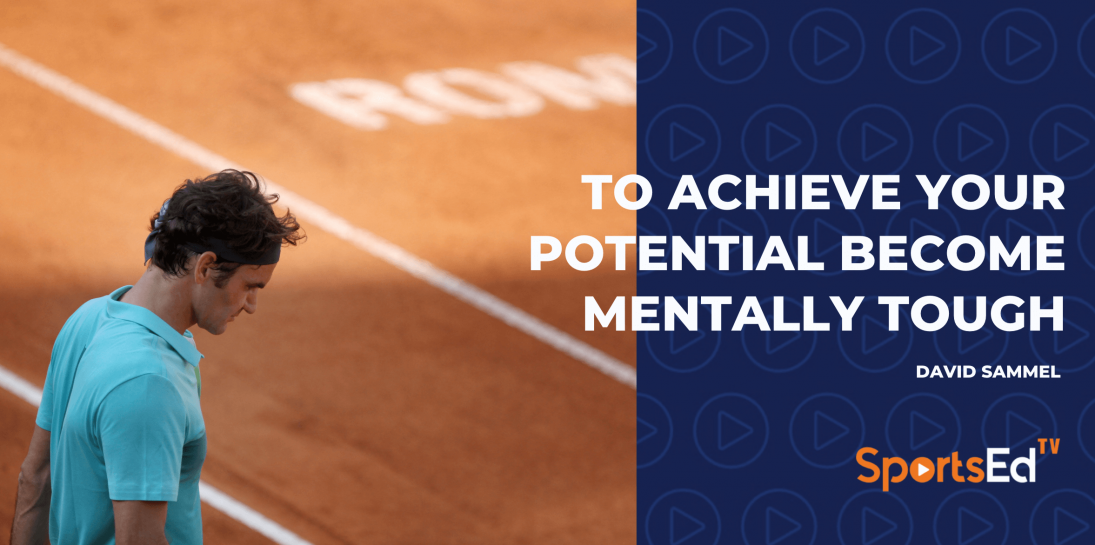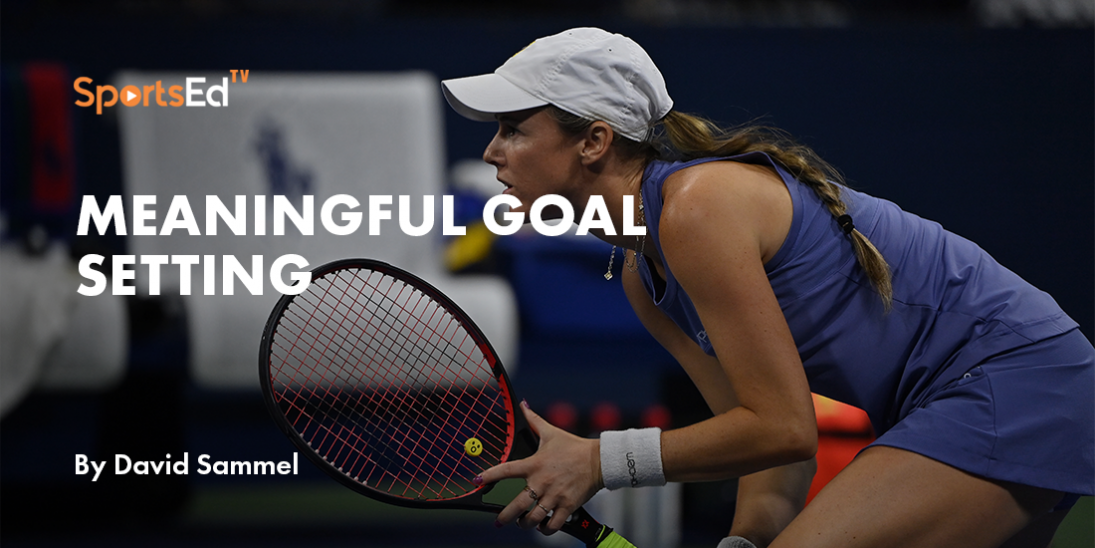Tennis
Welcome and thanks for visiting...

To Achieve Your Potential Become Mentally Tough

You can improve your sporting performance with just 5–10 minutes of practice every day. A statement I often hear from players is:
“If only I had more confidence and was mentally tougher I would be so much better”
The implication is that confidence, belief, and mental toughness are elusive gifts that only the lucky few possess. Absolute rubbish! Some people might be more adept at learning how to succeed at a young age, but it is not beyond anyone to learn how to be mentally tough.
A tennis player would never enter a tournament without hitting a ball for 3 weeks, but many athletes enter tournaments without doing any mental practice, yet wonder why their minds are weak. Your mind gets sharp and strong with practice, just as your body gets fit and strong through training.
Preparation to achieve mental toughness: Thinking like a top performer
Mental preparation falls into two categories:
- long term preparation
- preparing for a match
The steps below will not take hours and are not difficult to do. They require the desire to follow through consistently, applying yourself for 5–10 minutes most days.
.jpg) Rafael Nadal
Rafael Nadal
Long-term preparation to achieve mental toughness
Understand that confidence, belief, and toughness are affected by the way you talk to yourself and by the actions you take. Become your own parent and feed yourself inspiring words to encourage your mental growth into a confident adult.
Over 6 months you can build belief and trust in yourself by repeating on- and off-court positive self-statements. Find self-statements that lift and energize you.
Here are some examples:
â ‘I am good. I can do this.’
â ‘My talent grows ever y day. I believe in myself and the quality of my practice.’
â ‘I am good enough now. I do not need to think “one day" I will be good enough because I am prepared to fight 100% no matter who I play or where I play and know that this is all I expect.’
â ‘No one point is going to decide the outcome but the last one.’
â 'This is my day. I will win or I will learn so I always win.’
â ‘I love pressure! I love to intimidate opponents with how cool, relaxed, and aggressive I am under pressure.’
â ‘A challenge is fun. Every setback is a new challenge.’
â 'A problem is just a challenging decision. I will always make a decision.'
â ‘I rarely lose mentally. I’m tough so my opponent better turn up eager to play.’
â ‘I can see myself relaxed, confident, and equal to any player. I congratulate any opponent who on the day or at present plays better than me.’
â ‘Nerves are good. They tell me I’m ready. I also know my opponent will be nervous because we are all human.’
I recommend reading through and contemplating your list of statements every day and any time you want a lift. Try performing your self-statements out loud in front of a mirror, looking straight into your own eyes.
You might feel embarrassed the first few times, but if you can’t do this privately then how comfortable are you with yourself? It is imperative that you get comfortable with yourself as a person if you are to succeed.
Longâterm preparation is a journey of investigation into yourself but beware of the 'always searching' and 'complex confusion' syndromes. Keep your method short and simple. Adjust it with learned experience and always use a method that suits your personality.
Every champion is mentally tough in his or her way. All humans make mental mistakes, especially under pressure, but champions consistently work to improve because standing still is not an option if you value your position.
Metal preparing for a match
I cannot stress enough the importance of trying different mental strategies and finding a routine and method that works for you. Every mental skills article, book, seminar, and DVD will have similar messages presented in different ways. Use them to find your unique way of becoming mentally tough. Here are a few dynamics that in my experience happen before a match and need to be dealt with before you step out.
Fear
Being afraid seriously damages your performance. Often a player will simply brush feelings of fear under the carpet and pretend they are not happening or ignore them. Face fear head-on with a plan. Decide exactly how to use the weapons you have to strike fear into your opponents' hearts Take out their biggest weapons as soon as possible. Picture over and over again how you will defeat your opponent until you become mentally excited to play this person
Overcoming poor performance
How can you stay mentally tough when being outplayed or simply playing badly? Again, plan for this. Set small, achievable targets within the match. For example:
â ‘I will make two returns this game.’
â ‘I am looking for one opportunity to get to the net in this game.’
â ‘I will rally for six balls every point before taking a risk.’
â ‘I will win one more game.’
By being motivated to win a small skirmish you may build momentum and win a battle and then the war. Only your imagination can limit your targets.
Use your training
Picture your method of play and put your game on the court. There is no point in tactically playing in a way that you never practice. You become an expert by playing your game over and over again.
Mentally tough is not 'trying harder
Being mentally tough involves deciding to constantly be constructive during your thinking time. Being mentally tough means accepting the possibility of losing and focusing on an action that you will commit to fully. Any decision carried out with conviction is harder to beat than tentativeness, fearful play, or indecision.
.jpg)
Serena Williams
Comes and goes
Place the largest chunk of your confidence into your attitude and training. Preparing for a match is so much easier if you know you always compete for small victories, and none come smaller than each point. In tennis, if you think you can't win the match, win a point. That way a score of 5–0 is still interesting. Many a victory has been won by one point changing the momentum and confidence.
The importance of mental preparation
None of the above thinking happens without preparing for it. Specific matches can hold new challenges (e.g. wind, sun, playing surface, type of ball). The key is not to ignore them but to decide how you will handle them before you enter the arena. If you have not prepared a response you may be disappointed with your reaction under pressure.
If you prepare your responses often enough, the experience will soon turn them into positive automatic responses. You will respond to tough questions by posing some tough questions of your own — you will have learned to be mentally tough.
For more great tips visit: www.mindsetcollege.co.uk
IG: @mindset_college





